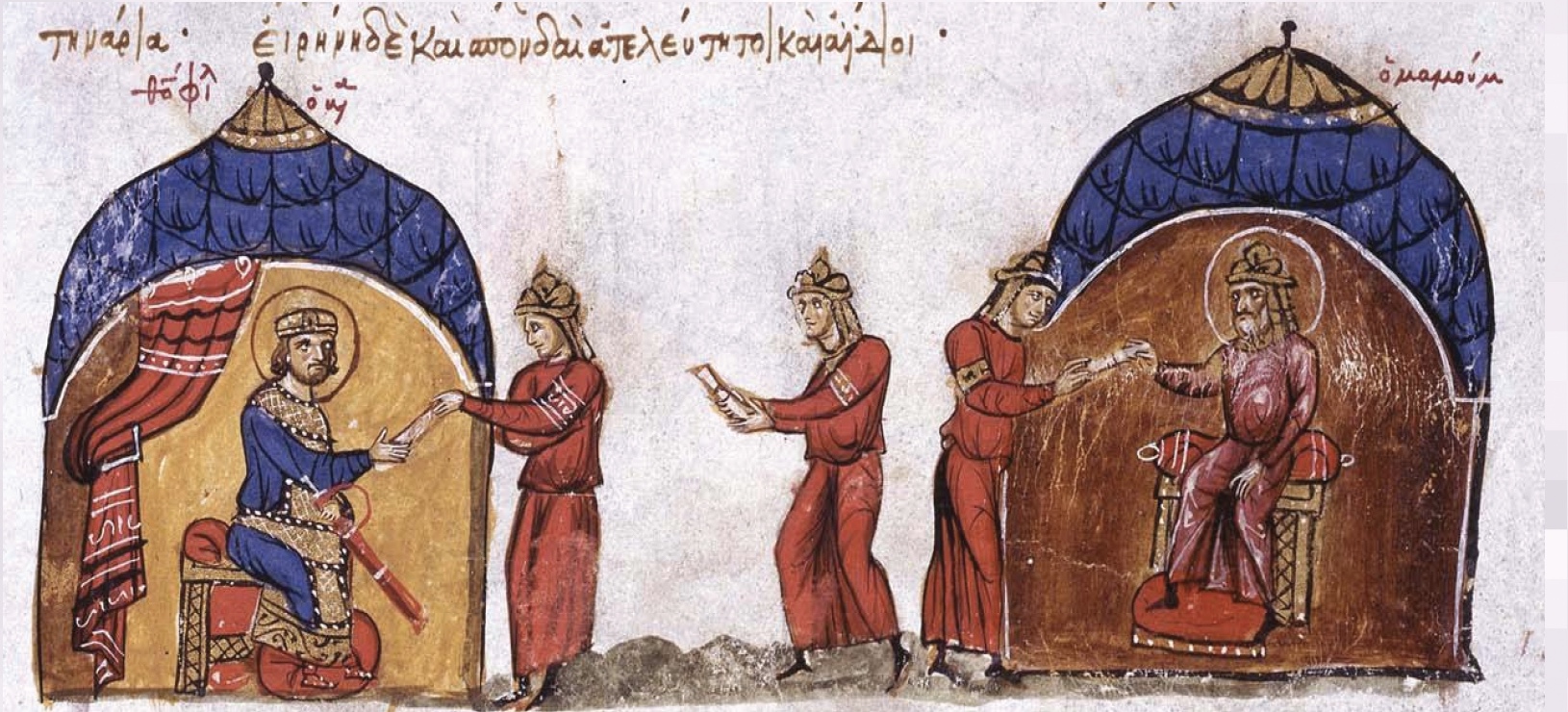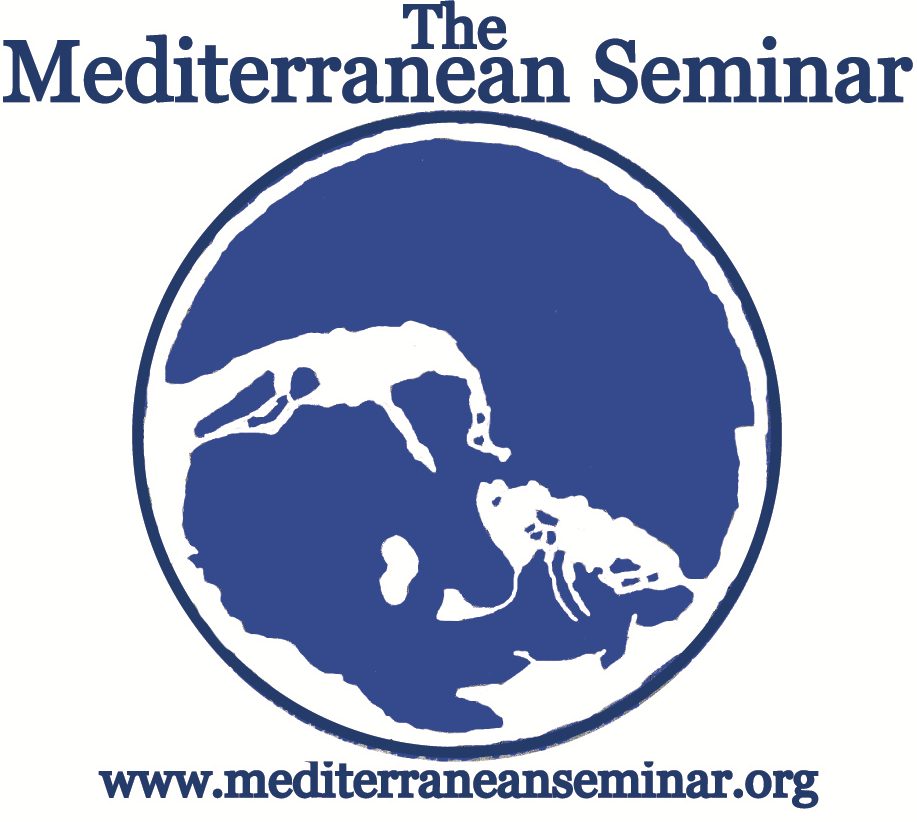

- This event has passed.
The Mediterranean Seminar Winter Workshop 2024, Intermediaries, Middle Grounds, Middle Sea
Los Angeles, CA 90095 United States + Google Map

As the theater of engagement and integration of communities originating on the shores or from the hinterlands of Africa, Asia, and Europe, the Mediterranean region served as a dynamic center of interaction and exchange from Antiquity through early modernity. Even as it began to lose political and economic centrality, it has remained a zone of engagement of diverse peoples and cultures into the Modern era. This engagement is both the product and the catalyst of continuous dialectical processes of translation, transculturation, colonization, and syncretism across the gamut of human experience and expression: in art, literature, language, music, religion, media, material culture, and folk practices, as well as in social, economic, political, and institutional dynamics.
The Winter 2024 Mediterranean Seminar Workshop focuses on the agents (the “go-betweens”) and the currents (the “in-betweens”) of such dialectics. Typically invisible or, at best, marginalized in traditional historiographies and disciplines, intermediaries and middle grounds (synthetic texts, translations, objects, institutions and strategies, and the individuals and communities who were their agents and products) are crucial to the understanding of the history and culture of the Mediterranean, and of the historical processes which gave rise to many aspects of the modern world.
Keynote presentations:
Rustam Shukurov (University of St Andrews), Friday
Claire Gilbert (Saint Louis University), Saturday
Workshop Program
| Day 1 – Friday 9, February 2024 | |
| 9:15 – 10:10 | Coffee and Registration |
| 10:10—10:30 | Opening Remarks Brian A. Catlos (University of Colorado Boulder) Sharon Kinoshita (UC Santa Cruz) Zrinka Stahuljak (UCLA) |
| 10:30–11:40 | Workshop Paper #1 “Theater of Conquest: Sovereignty and Territorial Expansion into Africa (1492-1530)” Marta Albalá-Pelegrín (Cal Poly Pomona) Moderator: Sharon Kinoshita (UC Santa Cruz) Respondent: Toby Yuen-Gen Liang (Academia Sinica, Taiwan) |
| 11:40–12:00 | Introductions |
| 12:00–1:00 | Lunch |
| 1:00-2:10 | Workshop Paper #2 “Treasonous Translations: Resisting Roman Hegemony in Medieval Armenia” Sergio LaPorta (CSU Fresno) Moderator: Brian A. Catlos (University of Colorado Boulder) Respondent: Christine Chism (UCLA) |
| 2:30–3:40 | Workshop Paper #3 “Antiquity and Embassies in Late-Ottoman Arabic” Samuel England (University of Wisconsin, Madison) Moderator: Zrinka Stahuljak (UCLA) Respondent: Nina Zhiri (UC San Diego) |
| 4:00–5:15 | Keynote Presentation: “Middle Grounds of Cultural Interaction in Comparative Perspective: The Case of Byzantium and Muslim Anatolia” Rustam Shukurov (University of St Andrews) Moderator: Brian A. Catlos (University of Colorado Boulder |
| 5:15-6:00 | Reception |
| Day 2 – Saturday 10, February 2024 | |
| 9:30–10:00 | Coffee and Registration |
| 10:00–11:15 | “The Fiduciary Mediterranean: Navigating Dynamics of Trust and Power across Language Communities” Claire Gilbert (Saint Louis University) Moderator: Sharon Kinoshita (UC Santa Cruz) |
| 11:30–12:45 | Round Table 1 To what extent did the individual character of intermediaries (go-betweens, diplomats, translators, fixers, exiles, refugees, enslaved people) shape cultural, political and/or economic developments in the Mediterranean? To what extent does this differ or resemble dynamics and apparatuses outside the region? Moderator: Brian A. Catlos (University of Colorado Boulder) – Nicole Archambeau (Colorado State Fort Collins), “A Mediterranean Understanding of Nature in a Fourteenth-Century Agricultural Manual” – John Curry (University of Nevada, Las Vegas) – Matthew Harpster (Koç University), “Studying the Muted Maritime Community of the Ancient Mediterranean” – Richard Ibarra (University of Southern California), “Identity Claims from the Mediterranean to the Atlantic” – Fabien Montcher (Saint Louis University), “Toward a History of Mediterranean Rhizomatic Cooperators” – Hossein Nakhaei (Pittsburgh University), “A Political Stage for Personal Interests: Antoine Kitabgi Khan and the Paris Exposition Universelle of 1900” – Nina Zhiri (UC San Diego), “The Malian and the Morisco” |
| 12:45–1:45 | Lunch |
| 1:45–3:00 | Round Table 2 What do transmitted, borrowed, gifted, or re-configured objects, styles, cultural forms, or texts reveal about processes of cultural dialectic in the Mediterranean? To what extent are these dynamics particularly Mediterranean? Moderator: Sharon Kinoshita (UC Santa Cruz) – Omar Artal (Eötvös Lorand University, Budapest), “Uncovering Mediterranean Cultural Dialectics: An Exploration of Transmitted Artefacts and Texts from Morocco to Sicily” – Thomas Barton (University of San Diego), “Western-Mediterranean Musicians as Cultural Intermediaries” – Patrick Morgan (UCLA), “The Legal Kaleidoscope” – Joëlle Rollo-Koster (University of Rhode Island), “Smelling authority and the sacred, musk at the medieval papal court” – Irina Variash (University of St Andrews), “The Mediterranean Legal Culture: Islamic and Christian Strategies in the Crown of Aragon in the Fourteenth Century” – David Wacks (Oregon), “Christian/Jewish entanglement in Converso spirituality” – David Williams (University of Saint Katherine), “The Monastery of Saint Catherine and its Latin Cult” |
| 3:15—4:30 | Round Table 3 How did the geographical character and/or institutional infrastructure that developed in the Mediterranean contribute to particular outcomes in terms of regional engagement and/or cultural, political, and/or social evolution? Moderator: Zrinka Stahuljak (UCLA) – Christine Chism (UCLA), “Corruption at the Crossing Places: Let’s Do It!” – Anne Le (Notre Dame University), “The Cost of Selling Culture: Smeg, Dolce & Gabbana, and Sicilian Folk Art” – Toby Yuen-Gen Liang, (Academia Sinica, Taiwan) – Roberta Morosini (Università degli Studi di Napoli L’Orientale), “En/compassing islands: Maps, Connectivity and mobile Borders” – Aaron Stamper (Princeton University), “Connectivity and Continuity in Mediterranean Mountains” – Marcus Ziemann (Princeton University), “Contact Without Contact” |
| 4:30–5:00 | Concluding Remarks Brian A. Catlos (University of Colorado Boulder), Sharon Kinoshita (UC Santa Cruz), and Zrinka Stahuljak (UCLA) |
Registration closed as of February 2nd, 2024
| Organizers – Brian A. Catlos, Sharon Kinoshita, and Zrinka Stahuljak
Hosted and Sponsored by CMRS Center for Early Global Studies at the University of California Los Angeles Co-Sponsors |

